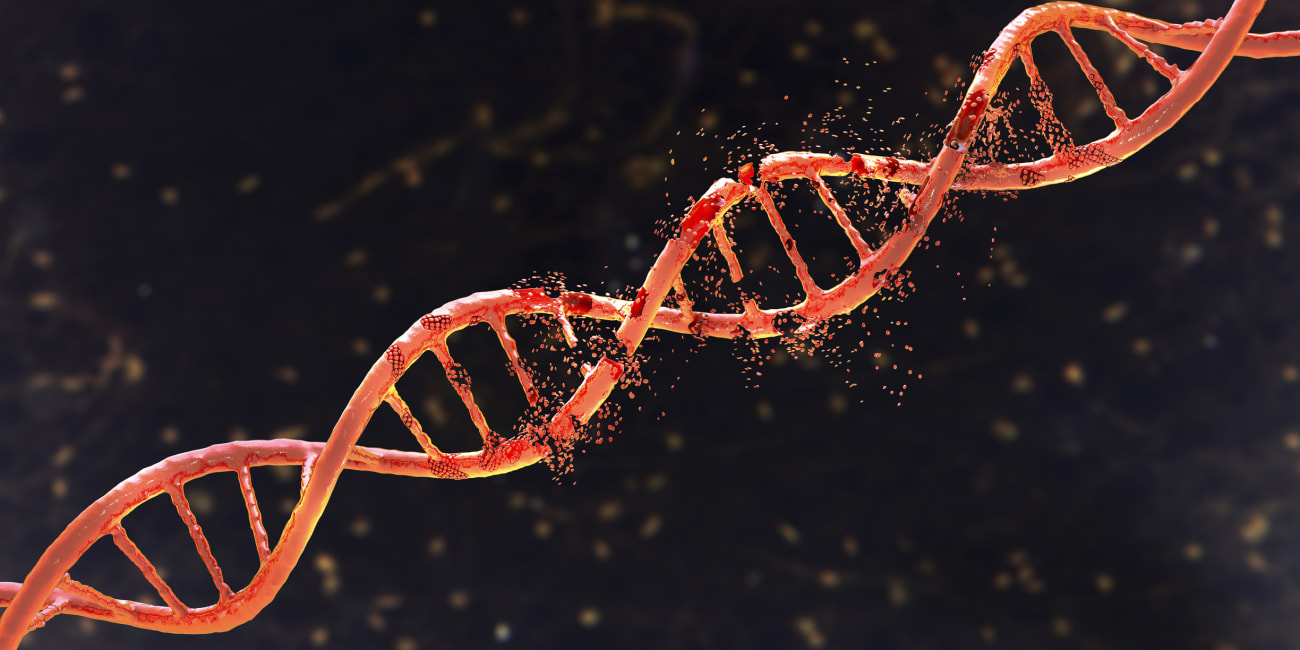Scrutinizing 25,000 genes in 8,000 men with prostate cancer.
Remember the childhood game of Telephone? A sentence such as “The sheepdog herded cattle into the barn” whispered from person to person somehow gets misinterpreted again and again, resulting in something like: “The sheep had kettle corn!”
The same thing could easily happen with our DNA as it makes copies of itself. But it usually doesn’t, because of our very own safeguards: DNA damage repair (DDR) genes. They are the quality-control supervisors, the tiny inspectors that help keep genetic mistakes from repeating themselves. “The cell’s ability to execute high-fidelity repair of DNA damage is particularly important in preventing cancer,” says molecular geneticist William Isaacs, Ph.D., the William Thomas Gerrard, Mario Anthony Duhon, and Jennifer and John Chalsty Professor of Urology.
Unfortunately, these genes are not foolproof, and when DNA damage repair genes don’t do their jobs, cancer may develop. Of all the genes known to confer a strong inherited risk of prostate cancer, only one – HOXB13, discovered by Isaacs and colleagues – is not a DDR gene!
The handful of mutated genes most strongly linked to prostate cancer can be inherited from either the mother or father, and are also linked to breast, ovarian, colon, and other cancers. These include BRCA2, ATM, CHEK2, PALB2, and MSH2.
But there are almost certainly other mutated DDR genes tied to prostate cancer risk, and Isaacs is looking for them, along with Brady scientists Jun Luo, Ph.D., and Shawn Lupold, Ph.D. “We are interested in relatively novel DDR genes that have not previously been linked to increased risk for prostate cancer – or any other cancers,” says Isaacs.
How does one look for a gene? With a lot of hard work! “We use next-generation DNA sequencing to examine the protein-coding sequences of each of the cell’s 25,000 or so genes, including all DDR genes, to detect mutations of interest,” says Isaacs. The team is doing this in an analysis of sequence data from more than 8,000 men with prostate cancer. They have found some promising candidates for further study: “A series of DDR genes, including SPIDR, SWS1, SWSAP1, MMS22L, c17orf53, and TONSL, are of particular interest.
They all harbor rare, inherited loss of function mutations that cause significant problems in the cell’s ability to repair its DNA, which can ultimately result in the cell’s transformation from normal to cancerous.” The investigators anticipate that some of these genes will be added to genetic tests, “with the beneficial result that more men at high risk for prostate cancer, particularly more aggressive disease, can be identified and followed closely.”
This work is supported by the Patrick C. Walsh Hereditary Prostate Cancer Program and its generous contributors.

